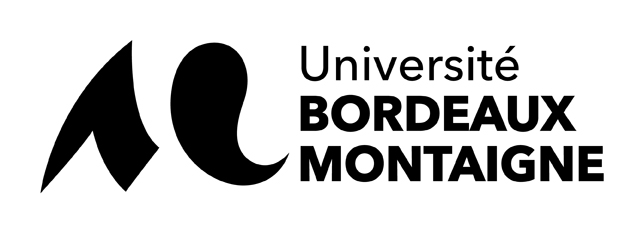EIMAS Winter School 2022
African Heritage: Legacies to the Present
Introduction to African Heritage
"African heritage" is a vast, rich, and diverse concept. The practices, beliefs, cultural settings, and cosmologies embedded in African ancestral heritage and running across generations are constantly acquiring new meanings. This is because over time, they are being reshaped by Africans in Africa and the diaspora.
With this in mind, it is the goal of the 2nd annual EIMAS Winter School is to rediscover and retrace the lived and living heritage of Africa; to celebrate its diversity, embrace its richness, paint a composite picture of African realities, and to learn from it as we imagine and participate in African futurity. We thereby aim to broaden participants’ knowledge about African heritage and epistemologies, which have been said to experience little recognition, particularly outside Africa. Takemoto, for instance, posits out that "African knowledge and practice has commonly been diminished and silenced in the trajectories of colonial and modern expansion"1 over the last centuries. Furthermore, these African knowledge practices are seldom explored in searching for solutions to 21st century problems. Our three-day Winter School will contribute to re-discovering marginalized knowledge and practices of African communities. It will also interrupt dominant western views on African heritage by broadening knowledge and will make for a better general appreciation of the term "African heritage".
Definition of Heritage and Scope: Intangible Cultural Heritage
In the understanding of heritage adopted for this Winter School, we subscribe to UNESCO's definition set out in the 2003 Convention for the Safeguarding of the Intangible Cultural Heritage. Following this Convention, we will be looking at intangible cultural heritage that is "transmitted from generation to generation, is constantly recreated by communities and groups in response to their environment, their interaction with nature and their history, and provides them with a sense of identity and continuity, thus promoting respect for cultural diversity and human creativity."2
We focus on the concept of intangible cultural heritage (that is, "voices", "values", "oral history") as we consider it to be as important as tangible cultural manifestations ("artifacts", "buildings", "landscapes").3 The different dimensions of cultural heritage contribute to establishing "an active relationship between the present and the past" for the communities concerned.3 This “intergenerational transmission of (tangible and intangible) experiences”4 is constantly reinterpreted and new colors and shades are added.5
In justifying our choice of a geographical scope as wide and heterogeneous as the continent of Africa, the most obvious reason lies in the fact that this Winter School is organized by a group of students who are studying in the European Interdisciplinary Master African Studies (EIMAS) programme. Nonetheless, the concern arose that we might fall into the common trap of lumping the continent's diverse regions into a vague abstraction. To counter this simplification, we will attempt to identify some shared challenges, practices and failures and complement them with specific case studies to gain more detailed insight into varied forms of African heritage.6
The Focus Areas We Will Be Exploring over the Winter School
During our three day Winter School, we will be exploring three focus areas under the scope of African heritage. The first day, under the heading knowledge, will be focused on epistemic injustices and the ongoing work to fight for epistemic justice for Africans and African knowledge systems. To that end, we will be learning hands on from a particular indigenous African knowledge practitioner. Day two concerns society. It is dedicated to the topic of governance and justice systems in pre-colonial Africa and the learnings that can be derived from them to meet the challenges of societies today. On the third and final day of the Winter School, we will be broadening our scope to the diaspora by examining how African music and dance has itself adapted and has been adapted as it came and comes into contact with other cultures and peoples, under the keyword culture.
Bibliography
1 Takemoto, Kazuhiko. "Foreword". In: African Heritage Knowledge in the context of Social Innovation. Rob O‘Donoghue, Soul Shava and Cryton Zazu (eds.). Yokohama, Japan: United Nations University Institute of Advanced studies (2013), p. 4.
2 "Text of the Convention for the Safeguarding of the Intangible Cultural Heritage". UNESCO, last accessed 18.01.2022, https://ich.unesco.org/en/convention.
3 Ogoti Kiriama, Herman, & Nyangara Onkoba, Edith (2020). "Significance in African Heritage". In: Heritage. https://doi.org/10.5772/intechopen.90821
4 Elias, Norbert (1991). "The Symbol Theory" (p. 31); as cited in African Heritage Knowledge in the context of Social Innovation. Rob O‘Donoghue, Soul Shava and Cryton Zazu (eds.). Yokohama, Japan: United Nations University Institute of Advanced studies (2013), p. 4.
5 Deacon H. (2004; 10(3): 309-319); Lenzerini F. (2011; 22(1): 101-120); UNESCO (2003); as cited in "Significance in African Heritage". Herman Ogoti Kiriama & Edith Nyangara Onkoba. In: Heritage (2020). https://doi.org/10.5772/intechopen.90821
6 Baillie, Britt & Strig Sørensen, Marie Louise. "Heritage Challenges in Africa: Contestations and Expectations". In: African Heritage Challenges Communities and Sustainable Development. Britt Baillie & Marie Louise Strig Sørensen (eds.). Singapore: Springer Nature (2021), p. 3.
Contact: EIMAS-Winter-School@uni-bayreuth.de



